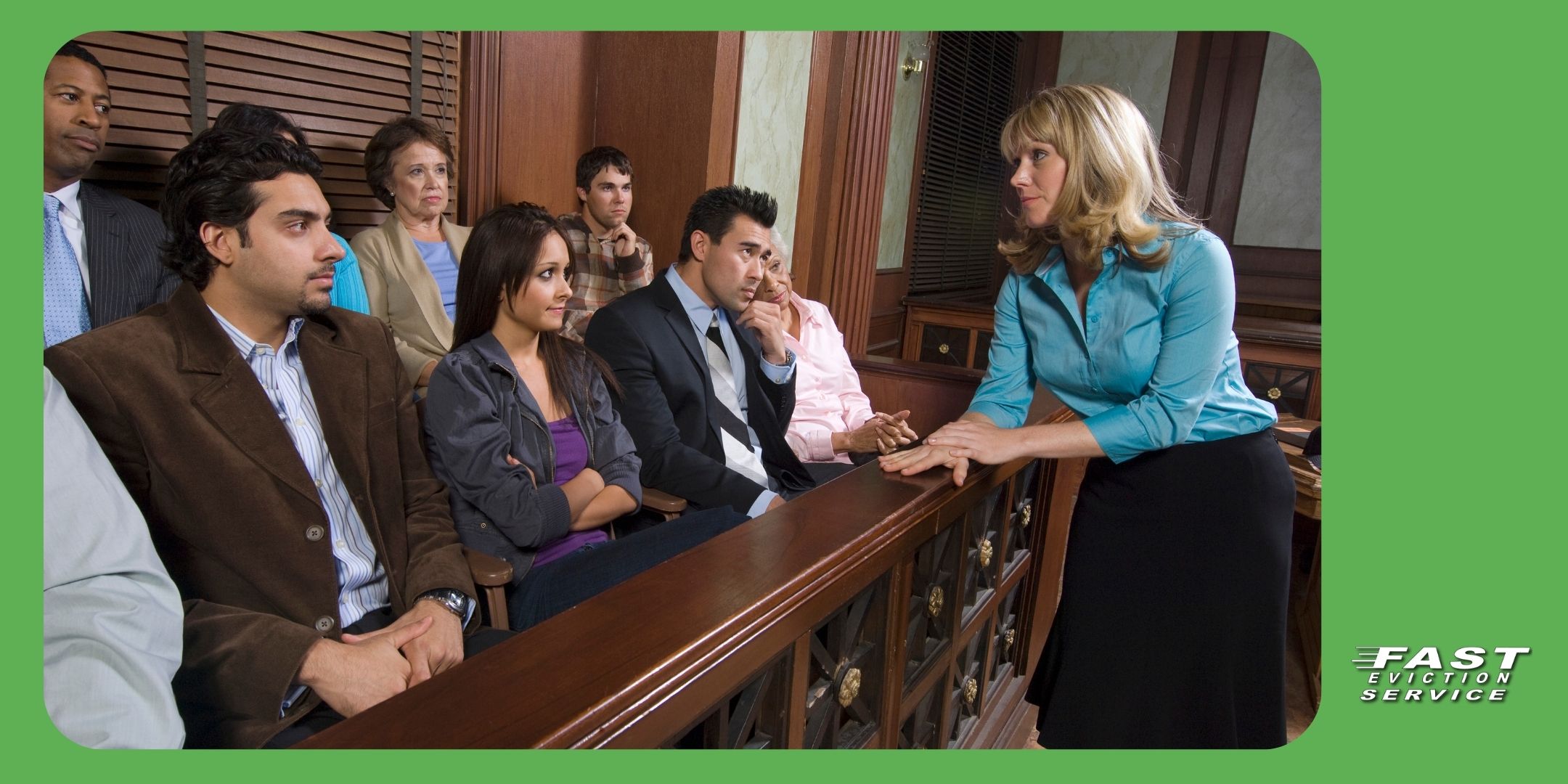Updated 04/03/25
As any seasoned landlord will tell you, even the most well-managed rental properties come with their fair share of challenges. While you may have airtight lease agreements and excellent curb appeal, you’re still going to deal with problems with tenants at some point in your journey. From late rent to noise complaints, these issues can quickly drain your time, energy, and profits if you’re not proactive.

But here’s the good news: most tenant issues can be resolved—or even avoided—with the right approach. Whether you’re managing a single rental unit or juggling a portfolio of properties, knowing how to handle bad tenants and prevent future issues is key to successful and stress-free property management. In this guide, I’ll walk you through the most common rental property problems landlords face and offer real-world, experience-backed advice to help you handle them like a pro.
Table of Contents
- Common Tenant Issues Every Landlord Should Expect
- Preventing Tenant Issues Before They Start
- Final Thoughts: Tenant Problems vs. Problem Tenants
- Frequently Asked Questions
Common Tenant Issues Every Landlord Should Expect
1. How to Handle Late or Unpaid Rent Gracefully
Dealing with late rent is one of the most frustrating problems with tenants. A single missed payment can trigger a chain reaction—covering your mortgage, utilities, and expenses suddenly becomes more complicated. And yet, it’s also one of the most common issues landlords report.
The key is to act quickly, but not emotionally. Start by enforcing a clear late rent policy outlined in your lease agreement. Include a grace period if required by your state, along with late fees. Communication is crucial here. Reach out to the tenant the day after rent is due. Keep the conversation friendly but firm. Most late payments are due to temporary setbacks, not malicious intent.
If the tenant consistently struggles to pay on time, you may need to negotiate a payment plan. Document everything. If payments still don’t come through, begin your state’s eviction process promptly. It’s never fun, but it’s necessary to maintain the integrity of your business.
Remember, part of solving late rent problems is prevention—more on that in our tenant screening section below.
2. What to Do When a Tenant Breaks the Lease Early
Few things cause more stress than when a tenant broke lease terms unexpectedly. Early lease termination often blindsides landlords, especially if there’s no early exit clause written into the agreement. But instead of reacting with frustration, focus on protecting your property and financial interests.
First, review your lease to confirm your legal rights and responsibilities. Then, communicate with the tenant to understand why they’re leaving. If they’re willing to cooperate, you might recover some costs, such as rent until the unit is re-rented or the forfeiture of a portion of the security deposit.
Make it a priority to re-list and show the property right away. Document your efforts to mitigate damages, which will protect you in a potential landlord tenant dispute.
In the future, consider adding a specific clause that outlines early lease termination penalties. This alone can deter impulsive departures and set clearer expectations.
3. Maintenance Problems: When Is the Landlord Responsible?
Rental maintenance issues are another hot topic that can quickly turn minor complaints into legal battles. But not all maintenance falls on the landlord’s shoulders, and confusion about responsibilities leads to frustration for both sides.
Generally, landlords are responsible for keeping the rental property habitable—this includes plumbing, heating, electrical systems, and structural integrity. Tenants, on the other hand, are usually responsible for keeping the unit clean and reporting problems promptly.
However, delays in responding to repair requests can make you appear negligent. That’s why proactive property management is so powerful. Schedule regular inspections, respond quickly to maintenance requests, and keep detailed repair records. This not only avoids conflicts but protects you in the event of a lawsuit.
And don’t forget: clear lease language goes a long way in defining who handles what.
4. Navigating Security Deposit Disputes Without Conflict
Security deposit disagreements are a classic pain point. Tenants often expect their full deposit back, even if they’ve left behind damage or unpaid rent. On the flip side, landlords may withhold funds without providing proper documentation, which invites legal trouble.
To avoid conflict, take a detailed move-in inspection with the tenant present. Use photos or video to document the condition of every room. When move-out comes, do the same. This simple comparison can save you hours of arguing and protect you during a dispute.
Make sure your deductions are legal and well-documented. Provide an itemized list of damages, along with receipts or estimates. Follow your state’s timeline for returning the deposit and keep a copy for your records.
Security deposit disputes are easier to manage when expectations are set from day one. That’s why lease agreement tips matter as much as your property upkeep.
5. Resolving Noise Complaints and Lease Violations
Noise complaints may seem minor, but they’re often the first sign of deeper rental property problems. Whether it’s loud parties, barking dogs, or constant foot traffic, these issues can cause good tenants to leave and attract unwanted attention from neighbors.
Addressing lease violations swiftly and respectfully is essential. First, verify the complaint. Talk to the tenant and gather details from the source of the complaint. Often, a simple conversation is enough to correct the behavior.
If the problem continues, issue a formal notice and reference the specific clause being violated. If all else fails, prepare for eviction proceedings. Dealing with difficult tenants isn’t about confrontation—it’s about boundaries, documentation, and follow-through.
Preventing Tenant Issues Before They Start
Pro Tips for Tenant Screening and Background Checks
Want to avoid 90% of the problems with tenants before they even start? Learn how to screen tenants effectively. A good screening process doesn’t just filter out bad tenants—it helps you identify reliable, respectful renters who value your property.
Start by requiring a complete rental application. Verify income, run a credit check, and contact previous landlords. Look for red flags like eviction history, frequent address changes, or inconsistent employment.
Always conduct an in-person or virtual interview. A tenant might look great on paper but give you uneasy vibes in conversation. Trust your instincts—but back them up with facts.
Never skip this step, even if someone “seems nice” or comes with a glowing referral. This is your first defense against early lease termination, unpaid rent, and avoidable damage.
Why Regular Maintenance Can Save You Thousands
Routine maintenance may feel like a drain on your wallet, but in reality, it’s your best investment. Small problems become big (and expensive) problems when ignored. Think of maintenance as both a tenant retention strategy and a damage control system.
A property that’s clean, functional, and safe signals to tenants that you care—which makes them more likely to take care of it too. Schedule seasonal checkups, replace aging fixtures before they break, and keep landscaping tidy.
Besides that, many states require regular maintenance to stay compliant. Skipping these responsibilities opens the door to landlord tenant disputes that could cost you far more than a routine service call.
Creating Lease Agreements That Protect Your Investment
Lease agreements are your best friend. They clarify expectations, protect your property, and give you legal standing when things go wrong. But too many landlords use cookie-cutter templates without customizing them for their specific rental.
Make sure your lease includes clauses about late rent solutions, early lease termination penalties, maintenance expectations, pet policies, noise levels, and security deposit procedures.
Use plain language. You want your tenant to understand every part of the contract. Consider having an attorney review your lease to make sure it holds up in court.
When it comes to rental property problems, an ounce of prevention truly is worth a pound of cure.
Final Thoughts: Tenant Problems vs. Problem Tenants
Let’s be clear—not every problem tenant is a bad person. Life happens. Jobs are lost. Emergencies come up. The real difference between a problem tenant and a bad tenant is how they respond—and how you manage it.
Dealing with difficult tenants becomes easier when you lead with empathy but enforce your boundaries. Stay professional, document everything, and don’t be afraid to act when your property is at risk.
Most importantly, use every challenge as a learning opportunity. The best landlords are the ones who adapt, grow, and never stop improving their systems.
Frequently Asked Questions: Problems with Tenants
What should I do if a tenant consistently pays rent late?
Start with a conversation, enforce your lease terms, and consider setting up an automatic payment system. Document all communication and prepare to take legal action if necessary.
Can I evict a tenant who breaks the lease early?
Yes, if your lease permits it. You may be entitled to damages or rent until a new tenant is found. Always follow your state’s laws and keep thorough documentation.
How do I avoid security deposit disputes?
Conduct detailed move-in and move-out inspections with photo or video evidence. Provide an itemized deduction list with receipts.
What’s the best way to screen tenants?
Use background checks, verify employment and income, check rental history, and always interview tenants before approval.



